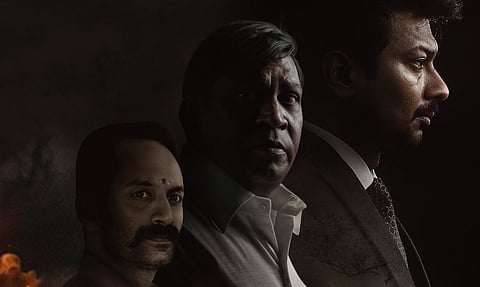Mari Selvaraj, ‘Maamannan’, and the cinema of caste in Tamil Nadu
In June, during a televised extravaganza to debut the original music for his latest release, Maamannan, the director Mari Selvaraj ran into controversy. In the presence of Kamal Haasan, one of the Tamil film industry's biggest stars, he made some critical comments on Thevar Magan – a 1992 release, starring Haasan, that is considered a landmark of Tamil cinema, and has become an emblem of caste pride for the Thevar community. Selvaraj said he was deeply affected by the film – to the point that the hero of Maamannan is based on Isakki, a character in Thevar Magan, where he appears as a loyal and subservient aide to the protagonist – and also acknowledged that it was celebrated by many directors for its cinematic language. But, alongside this, he implied that Thevar Magan had had a troubling impact on society. An open letter written by Selvaraj to Haasan some years ago also came to light, where he accused not just the film but also the veteran actor of being casteist.
As Haasan's fans rushed to his defence, those claiming anti-caste ideals extended their support to Selvaraj. The director soon clarified that the misunderstanding between him and Haasan was like one between a son and his father, but the controversy continued past the film's release in late June. This did not affect the film's success, but brought to the fore an energetic and ongoing debate on caste and representation in Tamil cinema, with Selvaraj and Maamannan at the centre of the latest skirmish as a new wave of anti-caste films challenge the Tamil film industry's old ways.

